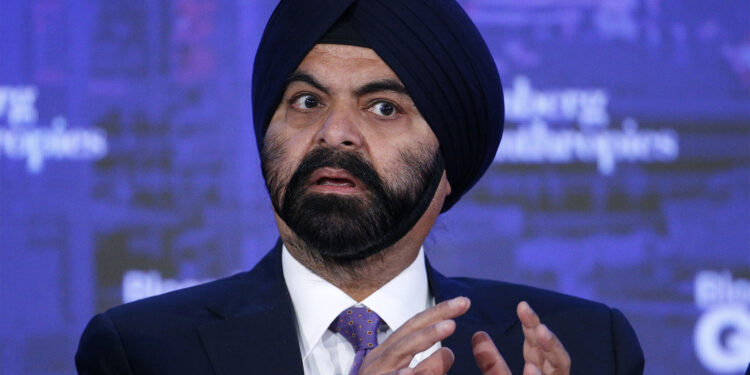World Bank President Ajay Banga warned that a significant expansion of the war waged by Israel in Gaza and Lebanon could lead to major impacts on the global economy, and described the large loss of civilian lives in the region as “unacceptable.”
Reuters quoted Banga as saying that the war has had a relatively small impact on the global economy so far, but that its expansion would attract other countries that contribute more to global growth, including countries that export primary commodities.
He continued: “First and foremost, I believe that this massive loss of life – women, children and other civilians – is unacceptable to all parties.”
He added: “On the other hand, the economic impact of this war depends greatly on the extent of its spread… If it spreads regionally, it will become a completely different matter… as it will begin to move to places that contribute much more to the global economy, both in terms of dollars, And also in terms of minerals, oil and the like.”
cease-fire
Some Western countries are pushing for a ceasefire between Israel and Hezbollah in Lebanon, as well as in Gaza, but the United States, Israel’s strongest ally, has confirmed its continued support for it and that it will provide it with an anti-missile system and forces.
Israel has launched a war on Gaza since October 7, 2023, and its scope has expanded to include mutual bombing with Yemen and Iran, a ground entry into Lebanon, and movement on the Syrian front.
According to the health authorities in Gaza, more than 42,000 Palestinians have been martyred in the Israeli attack on the Strip so far.
Israeli strikes in Lebanon over the course of a year also resulted in the deaths of at least 2,350 people and the injury of nearly 11,000, according to the Lebanese Ministry of Health, and more than 1.2 million people were displaced.
Physical damage
Banga stated that the material damage resulting from the Israeli military campaign in Gaza now likely ranges between 14 and 20 billion dollars, and that the cost of the destruction resulting from the Israeli bombing of southern Lebanon will increase this cost.
He said that the World Bank provided $300 million, six times what it normally provided, to the Palestinian Authority to help it manage the crisis on the ground, but this number is small compared to the “large amount” it will eventually need.
He added that the bank also gathered a group of experts from Jordan, Israel, Palestine, Europe, the United States and Egypt to discuss the short- and long-term measures it could take if a peace agreement could be reached.
He continued, “We will have to figure out how to research this matter and discuss it publicly, and then find the resources necessary for it,” adding that this effort will require private and public resources.



